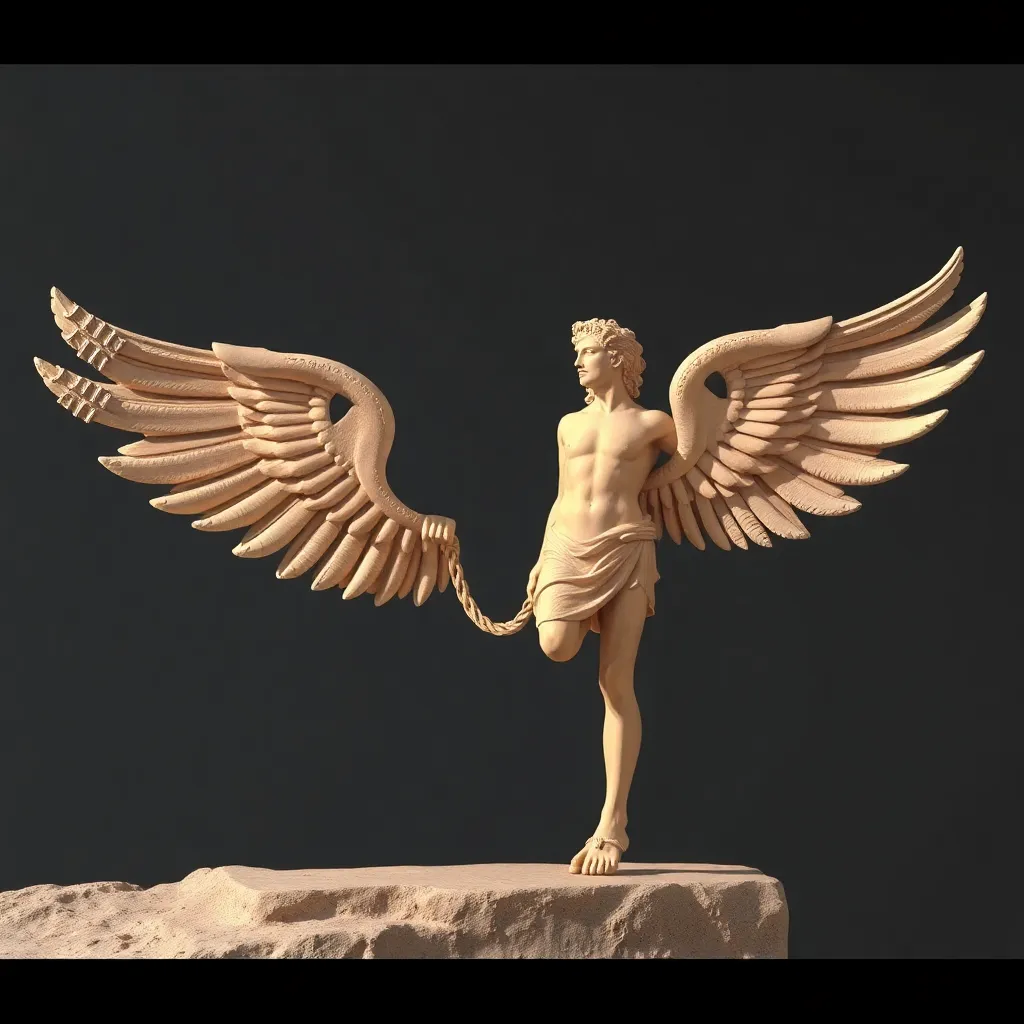The Symbolism of Perseus’ Winged Sandals: Freedom and Speed
I. Introduction
Perseus, one of the most celebrated heroes in Greek mythology, is best known for his daring exploits, including the slaying of the Gorgon Medusa and the rescue of Andromeda. His adventures are steeped in themes of bravery, cunning, and divine favor. Central to his narrative are the winged sandals bestowed upon him, which embody the concepts of freedom and speed.
This article aims to delve into the significance of these winged sandals, exploring their historical context, symbolic meanings, and the enduring legacy they hold in both ancient and contemporary interpretations.
II. Historical Context of Winged Sandals
The origins of the winged sandals can be traced back to Greek mythology, specifically associated with Hermes, the messenger of the gods. Hermes is often depicted wearing these sandals, known as “talaria,” which enable him to move swiftly between the realms of gods and mortals.
The connection to Hermes underscores the theme of mobility, as he is the personification of speed and travel. In Perseus’ story, the sandals represent divine intervention, granting him the ability to transcend human limitations and achieve the impossible.
III. Symbolism of Freedom
The winged sandals play a crucial role in Perseus’ quest, symbolizing his liberation from earthly constraints. They grant him the ability to fly, which is a powerful metaphor for freedom. This notion of flight transcends literal interpretation, representing the liberation of the spirit and the pursuit of one’s destiny.
Moreover, the symbolism of freedom can be compared to other mythological figures:
- Icarus: Although his flight ended tragically, Icarus represents the desire to break free from limitations.
- Daedalus: The craftsman who created the labyrinth, symbolizing the ingenuity and desire for freedom from confinement.
- Hercules: His labors, while binding, ultimately lead to his own liberation and godhood.
In this context, Perseus’ winged sandals become a powerful emblem of breaking free from the chains that bind us, whether they be physical, emotional, or societal.
IV. The Concept of Speed
Speed is a recurring theme in the adventures of Perseus. His winged sandals not only symbolize freedom but also represent the swiftness needed to complete his missions. In a world filled with formidable challenges, being fast is often the key to survival and success.
The significance of speed manifests in several ways:
- It allows Perseus to evade danger, particularly from Medusa’s petrifying gaze.
- Speed enhances his ability to rescue Andromeda, arriving just in time to thwart the sea monster.
- It positions Perseus as a heroic figure, emphasizing his quick wit and rapid response to threats.
By analyzing the role of speed in Perseus’ narrative, we see how it enhances his heroic status, marking him as a figure of both action and intellect.
V. Cultural Interpretations of Winged Sandals
The artistic representations of Perseus and his winged sandals have evolved over centuries, reflecting cultural interpretations of freedom and speed. From ancient pottery to Renaissance art, these sandals have inspired countless artists to capture the essence of Perseus’ heroism.
Moreover, the influence of winged sandals extends into modern literature and pop culture:
- In contemporary films, the imagery of winged sandals is often used to symbolize the struggle for freedom.
- Literary works frequently reference Perseus as a metaphor for overcoming personal obstacles through speed and agility.
- Video games and comics depict characters with similar attributes, drawing on the legacy of Perseus and his divine footwear.
These interpretations highlight the sandals’ symbolic meanings across different cultures, emphasizing their universal appeal as symbols of liberation and swiftness.
VI. Psychological Interpretation
The winged sandals can also be viewed through a psychological lens, representing aspiration and the human desire for growth. They serve as a reminder that the journey toward one’s goals often requires both speed and the freedom to pursue one’s dreams.
This connection between speed, freedom, and personal growth can be understood in various ways:
- Speed represents the urgency of pursuing aspirations and the need to seize opportunities.
- Freedom is essential for personal development, allowing individuals to explore their potential without constraints.
- The symbolism of winged sandals can motivate individuals to overcome their limitations and strive for greatness.
The impact of such symbols on human motivation is profound, as they inspire individuals to aspire to their highest potential.
VII. Legacy of Perseus’ Winged Sandals
The legacy of Perseus’ winged sandals continues to resonate in contemporary society. They endure as powerful symbols of freedom and speed, reminding us of the timeless nature of these themes in human experience.
Moreover, the sandals serve as an archetype for modern heroes:
- Individuals who defy odds and overcome challenges embody the spirit of Perseus.
- The pursuit of freedom remains a central tenet in social movements and personal journeys.
- Lessons learned from the myth of Perseus encourage resilience and courage in the face of adversity.
Thus, the winged sandals of Perseus remain relevant, inspiring new generations to embrace the duality of speed and freedom in their own lives.
VIII. Conclusion
In summary, the dual symbolism of Perseus’ winged sandals—freedom and speed—offers profound insights into the human experience. They serve as a reminder of the importance of liberation from constraints and the value of swiftness in achieving our goals.
As we reflect on these themes today, we are encouraged to consider our interpretations of freedom and speed in our lives. The story of Perseus and his sandals invites us to pursue our aspirations with fervor and to embrace the journey of personal growth.




